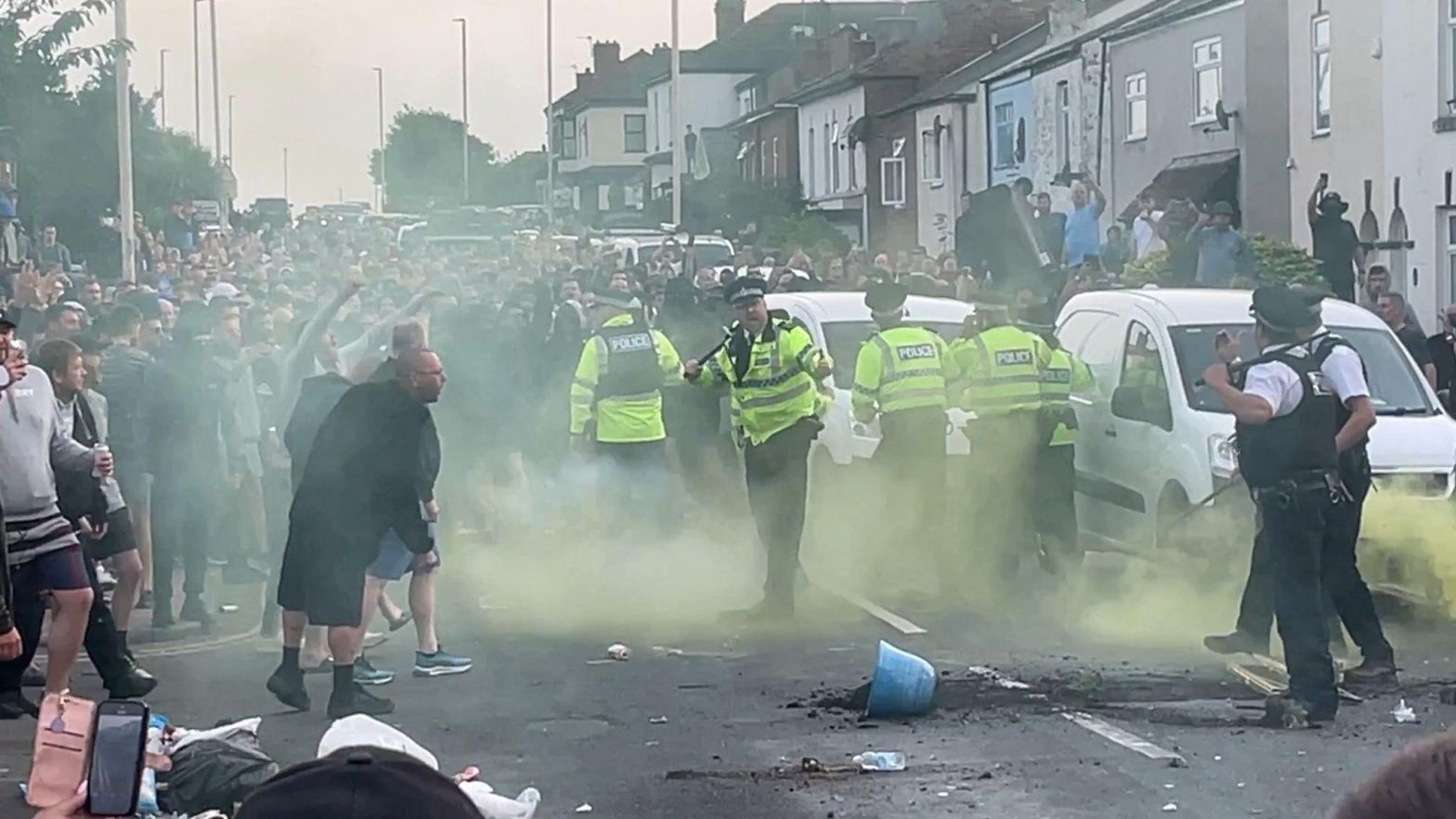Rioters will face ‘full force of the law’, says PM
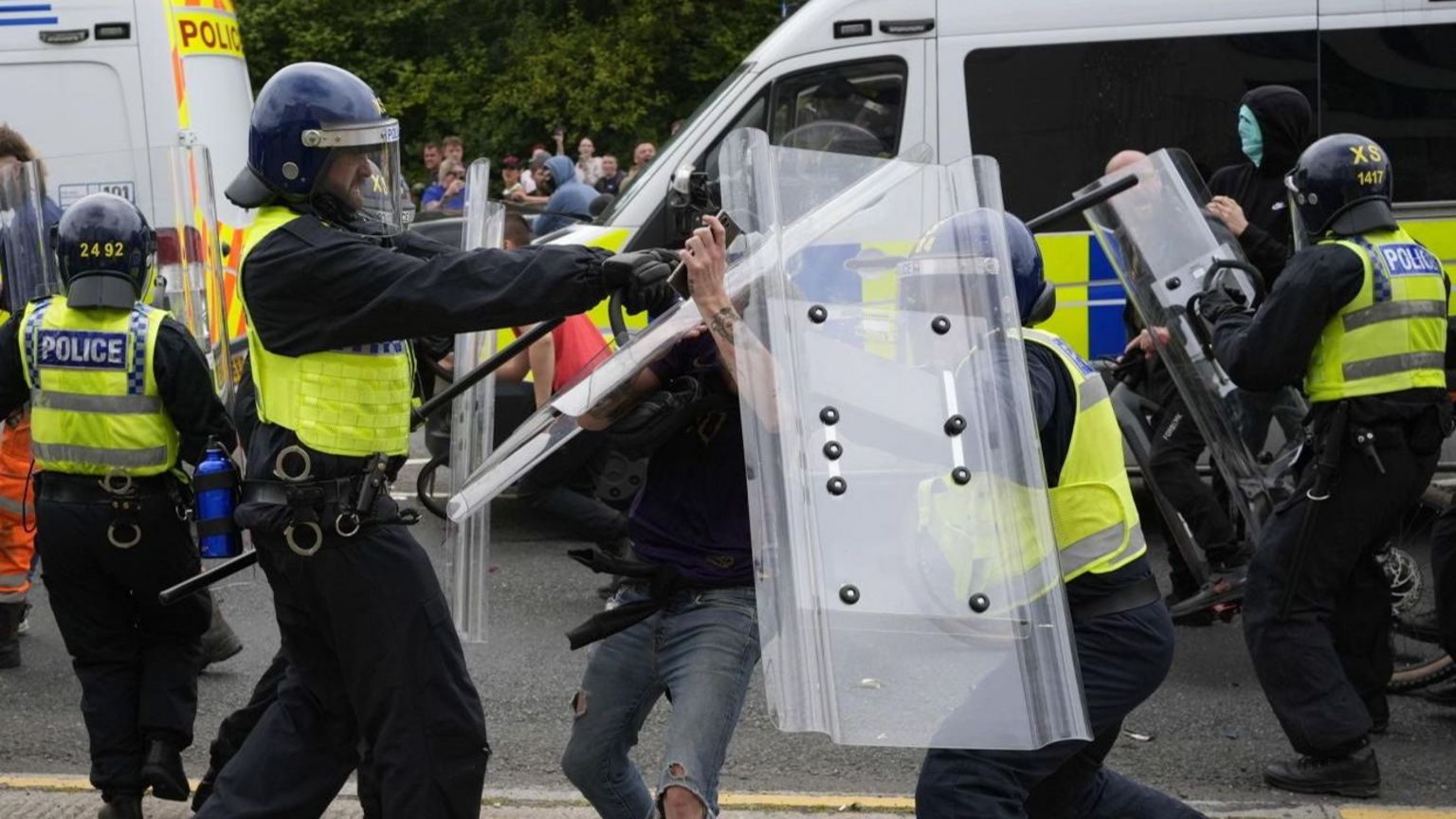
Prime Minister Sir Keir Starmer has said rioters behind violent disorder will rapidly face “the full force of the law”.
The government said it would make more than 500 new prison places available to ensure those taking part in the violence could be jailed.
Justice Minister Heidi Alexander said there was a “prison place waiting” for everyone involved in the violence.
Prosecutors are considering terrorism offences for some suspects, the director of public prosecutions told the BBC.
Stephen Parkinson also said that approximately 100 of the 400 people arrested over the disorder so far have been charged.
Speaking at a Cabinet meeting on Tuesday, the prime minister said the ongoing violence “is not protest – it is violent disorder and needs to be treated as such, as criminal activity”.
Ms Alexander told BBC Radio 4’s Today programme: “We will make sure that anyone who is given a custodial sentence as a result of the riots and disorder, there will be a prison place waiting for them.”
She said 567 additional prison places would soon be available, including extra cells at HMP Stocken, Rutland, and places at Cookham Wood Young Offender Institution in Kent for adult prisoners.
Further information released by the Ministry of Justice said it would also speed-up fire safety works in other parts of the prison estate to create useable space.
It follows the introduction three weeks ago of new measures to release some prisoners early due to a lack of capacity in the prison system.
Director of Public Prosecutions Mr Parkinson told the BBC some of the most serious offenders would be charged with terrorism offences.
He said his team would consider seeking the extradition of social media influencers allegedly playing a role in the disorder from abroad.
Mr Parkinson told the BBC that offenders “must know that they are not safe and there is nowhere to hide”.
To ensure “swift justice” can be delivered, Ms Alexander said courts in some areas “could possibly” begin sitting through the evening, nights and weekends.
Disorder has now lasted almost a week, following the fatal stabbing of three girls in Southport. The subsequent unrest in towns and cities across England and in parts of Northern Ireland has been fuelled by misinformation online, the far right and anti-immigration sentiment.
-
Live updates on riots and disorder in UK
-
Analysis: Protests reveal deep-rooted anger, but UK is not at boiling point
-
Watch: Seven days of violence
At the Cabinet meeting, Home Secretary Yvette Cooper condemned “the disgraceful scenes of crime and thuggery” at sites including mosques, a library and hotels housing asylum seekers.
She said a new National Violent Disorder Programme was bringing together policing capabilities from forces across the country to bring those responsible to justice.
Sir Keir said the government would “take all necessary action to bring the disorder to an end”.
Devon and Cornwall Police said several officers had suffered minor injuries in violence in Plymouth on Monday night.
The city council’s deputy leader, Jemima Laing, said it was “upsetting” to see Plymouth used as a stop on the “racist summer tour” that appears to be happening.
In South Belfast, riot officers had stones and petrol bombs thrown at them in an area close to a supermarket which was set on fire at the weekend. A man in his 50s has been hospitalised in an incident the police are treating as a racially motivated hate crime.
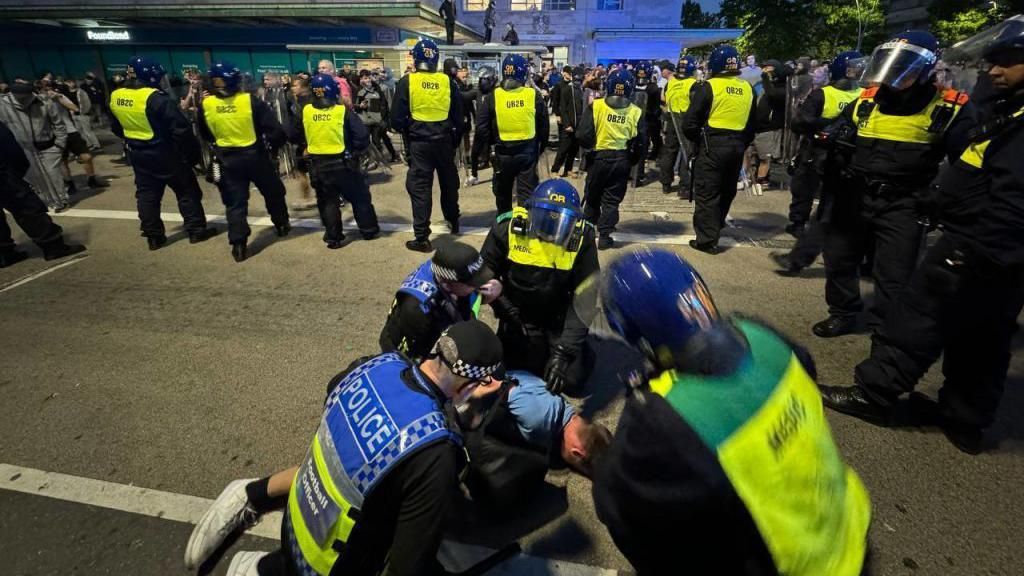
An 18-year-old has been arrested in Darlington, where bricks were thrown at police officers after two groups gathered near a mosque.
In Birmingham, there were disturbances after hundreds of people gathered in the Bordesley Green area of the city following false reports that a far-right march had been planned there.
A group of youths went on to break away from the gathering and attack several vehicles and a pub.
West Midlands Police later said no arrests had been made, but officers were investigating reports of an assault and incidents of criminal damage.
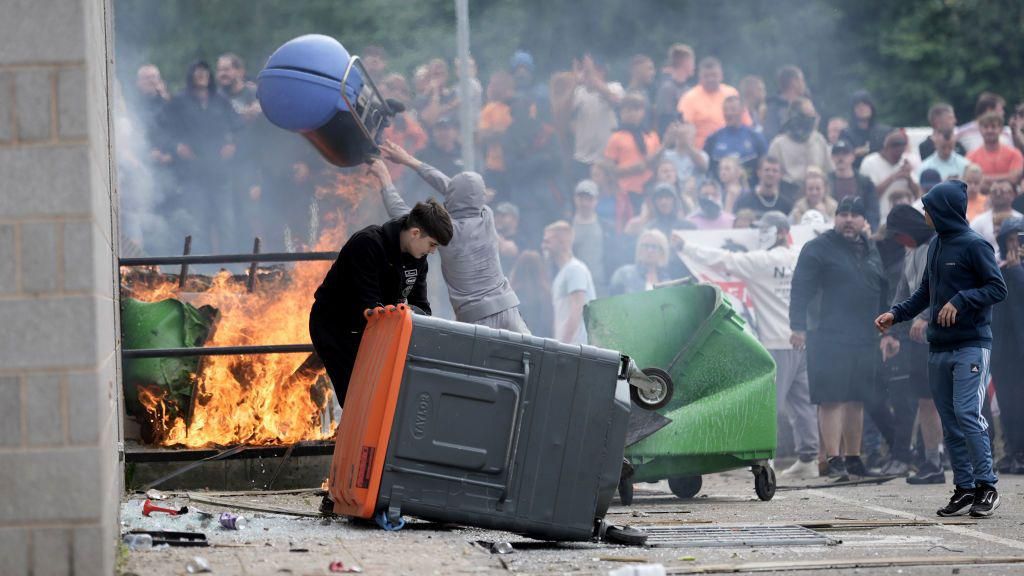
The week of rioting also saw two hotels housing asylum seekers targeted last weekend in Rotherham and Tamworth, with windows smashed to gain access and fires lit.
Six people have so far been charged over the disorder in Rotherham, South Yorkshire Police said.
In Middlesbrough, homes and businesses belonging to Muslims were also attacked.
A 17-year-old resident said her family “closed all the blinds and curtains” and sought safety upstairs as the rioters moved through her street.
She told the Today programme that they had tried to break into her house and destroyed the family car, which “had to be a write-off”.
Twenty-eight people were due to appear at Teesside Magistrates’ Court later on Tuesday, charged with violent disorder and other offences after events in Middlesbrough.
Archbishop of Canterbury Justin Welby called on people to hold “peaceful” protests which would have “10,000 times the impact” of the disorder.
“When Jesus was asked what you should do to have a good life, he said love God, love your neighbour and love your enemy.”
Mr Welby told the BBC protests were a good thing and “fundamental” to our freedoms, but only if done peacefully.
“Peaceful protest – peaceful statements – will convince, will change people’s minds [and] will at the very least, cause them to listen,” he said.
Related Topics
- Belfast
- Plymouth
- Southport knife attacks
- Northern Ireland
- Rotherham
More stories
-
Musk hits back after PM criticises UK ‘civil war’ post
-
46 minutes ago

-
-
Ex-police chief likens riots to terrorism
-
13 hours ago
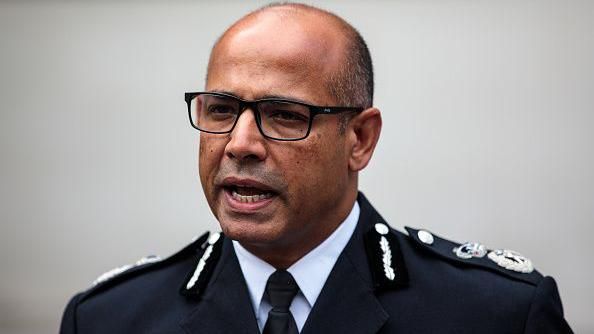
-
-
Southport unrest: Police ‘feared they would not make it home’
-
9 hours ago
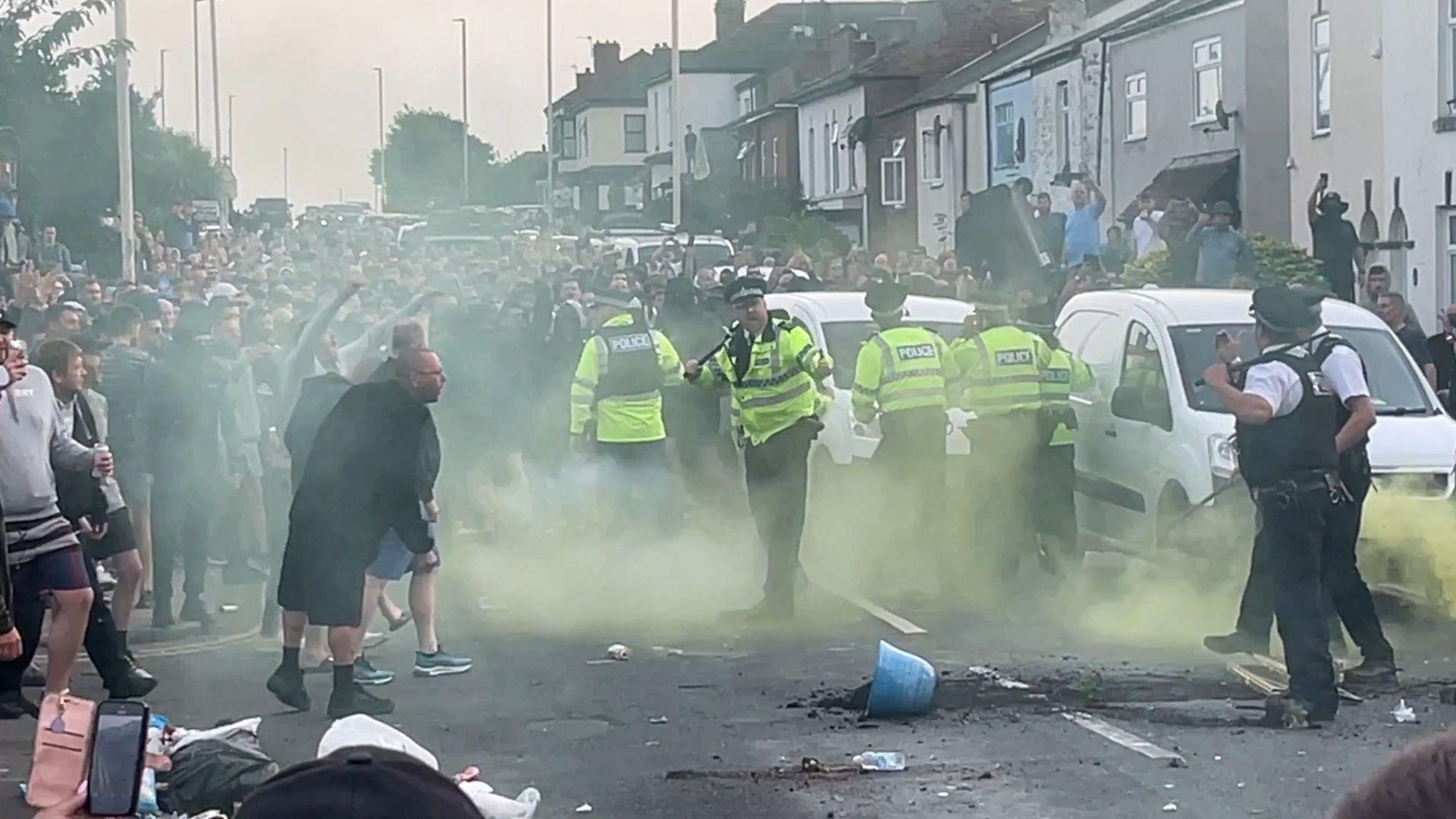
-
Published at Tue, 06 Aug 2024 13:57:30 +0000
